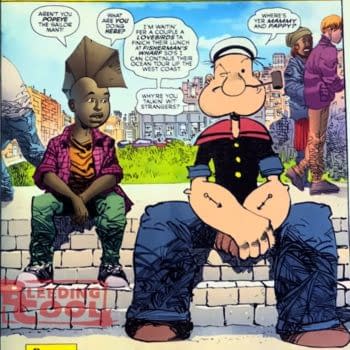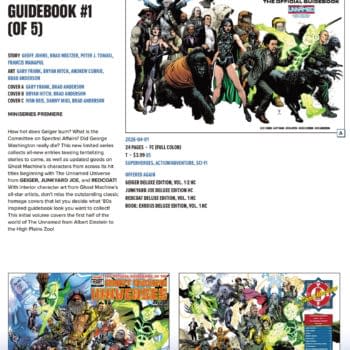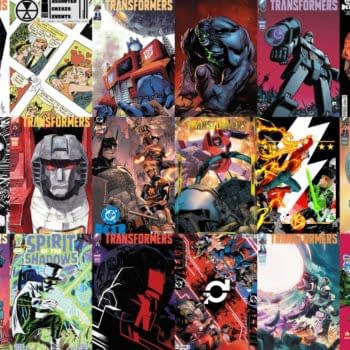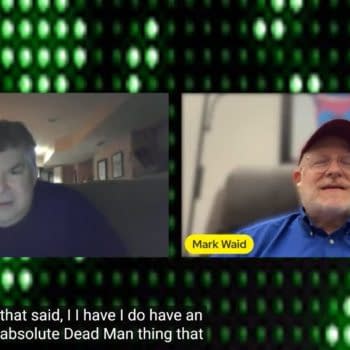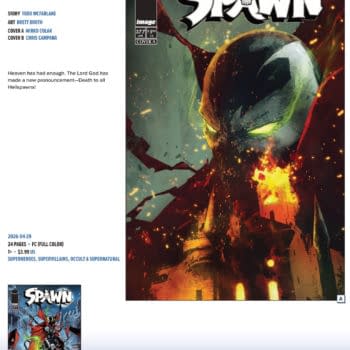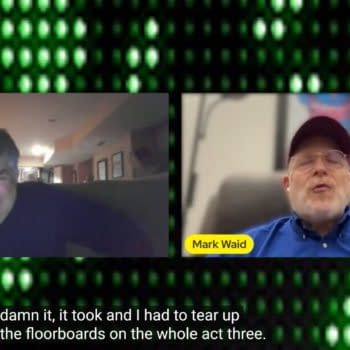Posted in: Comics | Tagged: Comics, dublin
Breaking Into Comics Part One: Getting Started
Colin O' Mahoney writes for Bleeding Cool;
Dublin International Comic Expo is a smaller con than most, but for attendees, this means less time queuing and more time with their favourite creators. This access to creators and editors, and a panel timetable that gives a lot of room to each topic, is giving D.I.C.E a reputation as a must-go for anyone who wants to work in the industry.
Throughout D.I.C.E, there were several panels relating to breaking into and working in comics; here is some of the best of the advice given to budding creators, be they writers or artists. Everything below was culled from professionals working in comics today; writers, artist, editors, and colourists. So if you have any intention of breaking into comics, pay close attention…
First things first: if you want to break into comics, then stop thinking about it, stop talking about it, and 'start making stuff'. Something that all the panellists agreed on was that whether you are a writer or an artist, before you start worrying about breaking in, you should be worrying about 'being good enough to do it'. The first thing you write or draw will not be good enough to be published by Marvel. Neither will the second, or the third, or the fourth… Thor and Uncanny X-Men writer Kieron Gillen stresses that 'the process of being good involves not being good for a long time'. Unless you are willing to put in the hours and really 'worry about your craft', then you're not going anywhere.
Will Sliney, whose art credits include Star Wars books and the upcoming Image MacGyver series, talked about the hours he put in when trying to break into comics. While working a day job, he used to get up early to put in 2 hours drawing, he came home during lunch hour to draw, and his evenings went into his art as well. If you are serious about breaking in, be prepared to make sacrifices. As a rule of thumb, Sliney suggests 5 hours a day drawing. This is the kind of time you need to put into your art. Think about this. Are you that passionate about comics that you are willing to give it this kind of commitment?
Once you feel you are good enough, then it's time to get your stuff out there. The good news here is that, as Kieron Gillen puts it, comics are by definition 'a very acessible medium'. You don't need access to a printing press, you don't need massive resources. Get in touch with local small press publishers. Start a tumblr, a blog, make a webcomic. Self-publish, give your work away at cons, use Kickstarter. At this stage, it's not about making money; this shouldn't be your main goal. You should be more concerned about people seeing your work and building a reputation. Getting your work out there, in any form, is the best way to get more work. If you are a writer you need to be just as committed as an artist. You need to be writing, and working on your craft, anyway you can. This doesn't necessarily even mean comics. Any kind of writing is good. Short stories, journalism, a blog. If you're writing, you're learning, you're improving, and you're getting your work out there. Michael Carroll (2000AD's Judge Dredd) started with novels, and still practises writing short fiction. Vertigo editor Mark Doyle found Scott Snyder in a bookstore, doing a reading of his short prose fiction. Doyle was impressed, and approached him about comics. A few years later and Scott Snyder is writing Batman for D.C. The bottom line here is – get your work out there, in any form you can. Which leads to the next point…
Go to the shows. This is where you will find the small press publishers, and to talk to the people involved with them. Cons are the best opportunity to get your work seen. Not just by pros, but by others trying to break into the big league, all of whom you should look at as a potential collaborator. At every stage of your career, making contacts and cultivating relationships is vital. As with any industry, who you know can be huge, and cons are the best place to get to know people working in comics. These are the people you can work with, the people who might know other people, and who might help you get a leg up if they make it in first. Outside of the cons, you can do this work online. Blogs, Twitter, Tumblr, and Deviantart are all free ways of networking, and they remain important even for professionals. Former Marvel editor Nate Cosby, now a freelance writer, says Twitter is the no. 1 place he goes to look for artists, and that approximately half of his current collaborators were found online.
So that's how you get started. It's all straightforward advice; there's no secret formula. You just have to work hard and then do what you can to get noticed. In part two we will deal with a very important aspect of getting published, for newcomers and pros alike: pitching your work.
Thanks to the organisers of D.I.C.E. and all the participants in the panels over the weekend, too numerous to list here, who all gave generously of their time to help aspiring creators.







